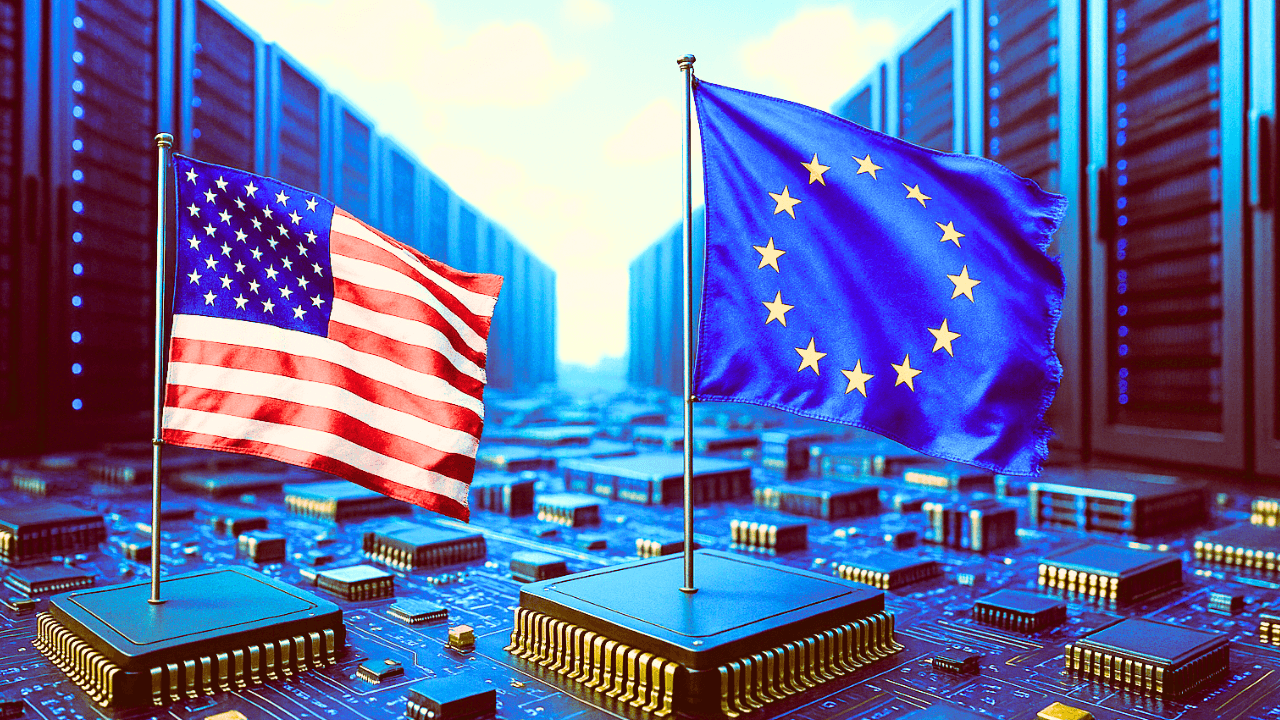This week, the United States reached a trade deal with the European Union, which includes the elimination of EU tariffs on US industrial goods, and the EU will also pay a 15 per cent tariff on certain US goods.
The president of the European Commission, Ursula von der Leyen, issued a statement that shared:
“We have stabilised on a single 15 per cent tariff rate for the vast majority of EU exports. This rate applies across most sectors, including cars, semiconductors and pharmaceuticals.
This 15 per cent is a clear ceiling. No stacking. All-inclusive. So it gives much-needed clarity for our citizens and businesses. This is absolutely crucial."
In other words, although the deal avoids the previously threatened 30 per cent set to take effect on Aug. 1, it imposes a 15 per cent baseline tariff on most EU exports to the US, including autos, semiconductors, and pharmaceuticals.
The statement by von der Leyen also shared an “agreed on zero-for-zero tariffs on a number of strategic products.
This includes all aircraft and component parts, certain chemicals, certain generics, semiconductor equipment, certain agricultural products, natural resources and critical raw materials. And we will keep working to add more products to this list.”
Critics say EU gave in too easily
The deal has drawn robust criticism from some politicians and European trade groups as rather than joining Canada and China in responding with immediate retaliation to inflict economic pressure on US consumers and businesses, Europe has chosen a path marked by economic and political concessions.
A statement by the European DIGITAL SME Alliance contends that the agreed 15 per cent tariff is based on
“Trump’s misleading trade deficit narrative: Europe imports more than €300 billion in digital services from the US annually, offsetting the goods deficit.”
“At the same time, the EU already applies significantly lower tariffs on many US goods than vice versa – for instance on cars.”
The European DIGITAL SME Alliance is the largest network of ICT small and medium enterprises (SMEs) in Europe, representing more than 45,000 digital SMEs across the EU. The alliance is the joint effort of 30 national and regional SME associations from EU member states and neighbouring countries.
Previously, in regard to news of the incoming tariffs, European investors and founders told Tech.eu that Europe must strengthen its own supply chains, reduce reliance on US cloud providers, and build homegrown infrastructure to retain control and resilience
The risk of locking Europe into disadvantageous trade conditions
The European DIGITAL SME Alliance calls on the European Commission and Member States to reassess the agreement during the forthcoming detailed negotiations to protect Europe’s strategic autonomy and strengthen its own technological base.
According to the trade agreement, the US gains access to European markets with reduced or eliminated EU tariffs, while the EU bears a flat 15 per cent on most goods. This imbalance may lock Europe into disadvantageous trade conditions.
Further, commitments to increase imports of US LNG (Liquefied Natural Gas), AI chips, and military products will channel significant European investment into US industries at the expense of European capacity building.
It also contends that in the digital sector, US tech giants remain untouched — despite their significantly more favourable tax treatment than many European firms.
The European DIGITAL SME’s statement further cautions that the trade deal risks locking the European economy into a deeper reliance on American suppliers, further entrenching Europe’s technological dependency on the US.
Increasing Europe's dependence on the US
The deal coincides with the Trump administration’s AI Action Plan, a strategy aimed at consolidating US digital imperialism by exporting the entire American AI stack — chips, software, cloud, and standards — making allies structurally dependent on US technology. For example, the planned bundling of NVIDIA’s AI chips with US-based cloud and software services would further constrain Europe’s ability to build a self-sufficient and competitive digital ecosystem.
According to DIGITAL SME President, Dr Oliver Grün:
“The White House’s tariff policy is built on a distorted view of the transatlantic trade relationship. While the US highlights a deficit in goods, it ignores the €300+ billion Europe imports annually in US digital services.
This imbalance exposes the structural dominance of American technology in the European economy — contributing to Europe’s productivity gap."
The DIGITAL SME urges the European Commission to use the upcoming technical negotiations to rebalance the agreement to include safeguards for European technological sovereignty and a concrete plan to build a European tech stack capable of competing on equal terms.
They are not the only ones criticising the deal. The French prime minister, François Bayrou, labelled the framework deal as a “dark day” for the EU, sharing on X on Monday:
“It is a dark day when an alliance of free peoples, brought together to affirm their common values and to defend their common interests, resigns itself to submission,” Bayrou wrote on X on Monday.
Hungary's Prime Minister Viktor Orbán slammed European Commission President Ursula von der Leyen, describing the talks as "Trump eating von der Leyen for breakfast."
UK trumps ahead
In stark contrast, the UK–US trade deal retains a 10 per cent blanket US tariff on UK imports — arguably offering clearer terms and potentially stronger incentives for UK startups and scaleups trading with the US. It shows what can be achieved when you play nice.
As the EU enters detailed negotiations, can Europe pivot from concessions to assert a stronger stance — one that protects its strategic industries and fosters true digital and economic sovereignty?
As DIGITAL SME President, Dr Oliver Grün states:
“Only by advancing a genuine strategy for technological autonomy can Europe reclaim political sovereignty and boost its economic competitiveness.”



Would you like to write the first comment?
Login to post comments